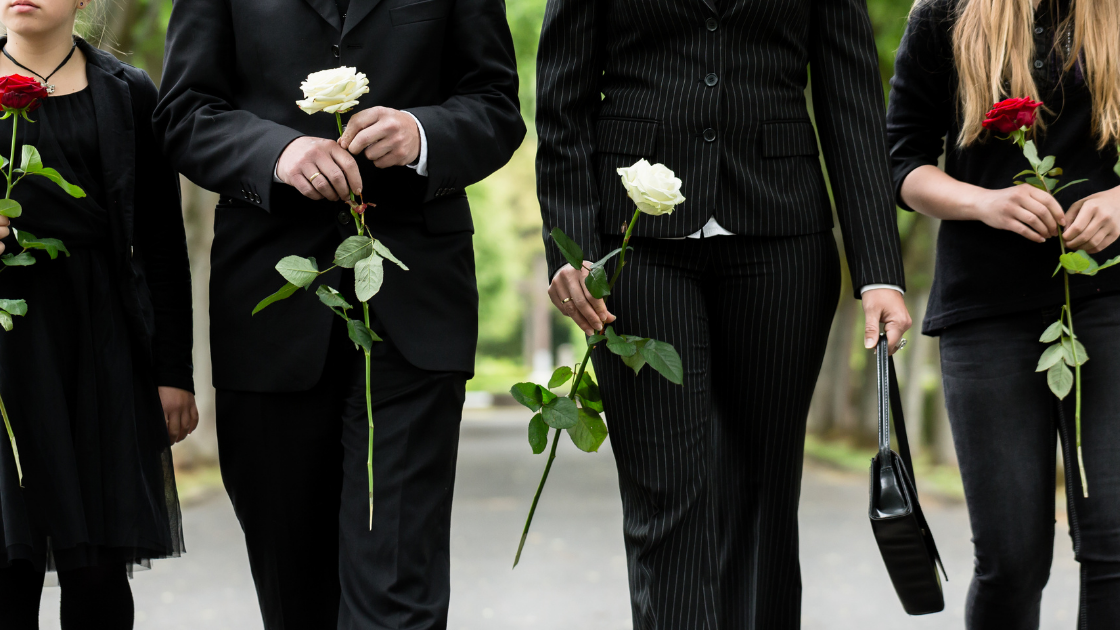Awareness of the Sacred in the Funeral Ritual
Thanks to Neal Gray for contributing this piece to Connecting Directors. Neal retired as a pastor after 30 years of service and now serves as a funeral service assistant for SCI (Dignity Memorial) in Oklahoma City. He is progressing toward being a licensed funeral director is also a writer. Neal wrote this article originally as an academic assignment.
As a funeral service worker, my feeling is that an awareness of the sacred aspects of the ritual in a funeral may well be helpful to many families; rather, that there is something, some aspect beyond the obvious in the funeral ritual that a person may perceive.
There May Be a Sense of Something Extraordinary
Generally, adults attend funerals; although, of course, children are welcome and do attend, too. In North America, which is the country/continent where this author practices, our predominantly postmodern Western world is a confusing and contradictory place to inhabit. In those confusions and contradictions, formalized religion is less influential in shaping peoples’ worldviews and behavior as it once was, and we may have lost our awareness of the sacred in our lives. And yet, there remains an interest in the transcendent and that which may give meaning and purpose to life.
One professor characterizes this interest as a subjective sense human beings appear to have about being in the presence of something larger than themselves. It is that “subjective sense” that I am referring to as being perceived as “the sacred.” This sacredness, or subjective sense, is not in itself religion, nor a set of beliefs, but rather it is a sense in one of belonging, of safety, of at-one-ment, or attunement. If such a sense is present in any adult at the funeral, it may well be felt as an extraordinary comfort and help.
Seeking Answers in the Funeral Ritual
The funeral itself, as far as anyone actually knows, has no effect upon the
decedent. A Spanish priest once wrote, “Funerary pomp, mausoleums, music, decorations, etc. serve more to console the living than to ease the dead.” Rather, funeral rituals are chiefly in the interests of the living, who use them to express their disquiet and attenuate their anguish as well as to display their social status. But in the 6th century B.C. Grecian lament rituals, the Greeks believed that the dead person could hear the songs of the female
(only) singers:
Leading the funeral lament was the song leader…she was a professional
mourner, but could also be the mother or close female relative of the lead….
As she led the female mourners in lament, she was careful to cradle the head of the corpse. Touch was necessary in order to open the ears of the dead. But once the ears were opened, the living women had to tread carefully. Not only could the dead hear funeral laments sung for them during the prothesis, they could also determine whether the presence of the living was good or malevolent. From Sacred Songs for the Dead (Ancient Greek Funeral’s Ritual of Lament
During Prothesis) by P. Lundy
In a funeral, a person seeking to attenuate their anguish, or to perhaps find some consolation, or even hoping that the decedent might hear her lament, may rightly ask questions such as, “What is the point of life since it ends up like this?”, or “What happens when I die?”, or similar such meaning-seeking questions. A reasonable response to these questions about an unknowing aspect of life and death is simply this, “It is a mystery.” It is this mystery that makes up the substance that this author is calling the “sacred,” implying
that it is beyond what our senses can perceive and beyond our mundane definitions, because it is of that component we call spirituality. Mystery and otherness are part of what spirituality is.
Conclusion
The funeral is a ritual, one filled with traditions that vary across cultures. My thought is that it is not that the tradition has value, per se, but how it affects those who deem it valuable. In the funeral ritual one may find an experiential sacred element emerging through the ritual, an element that affects them. This spiritual element in all of us seeks possibilities to transcend any present trying circumstances, to hope and to dream. The funeral ritual attender may be seeking and experiencing a sacred awareness in the funeral ritual, being affected and helped.




